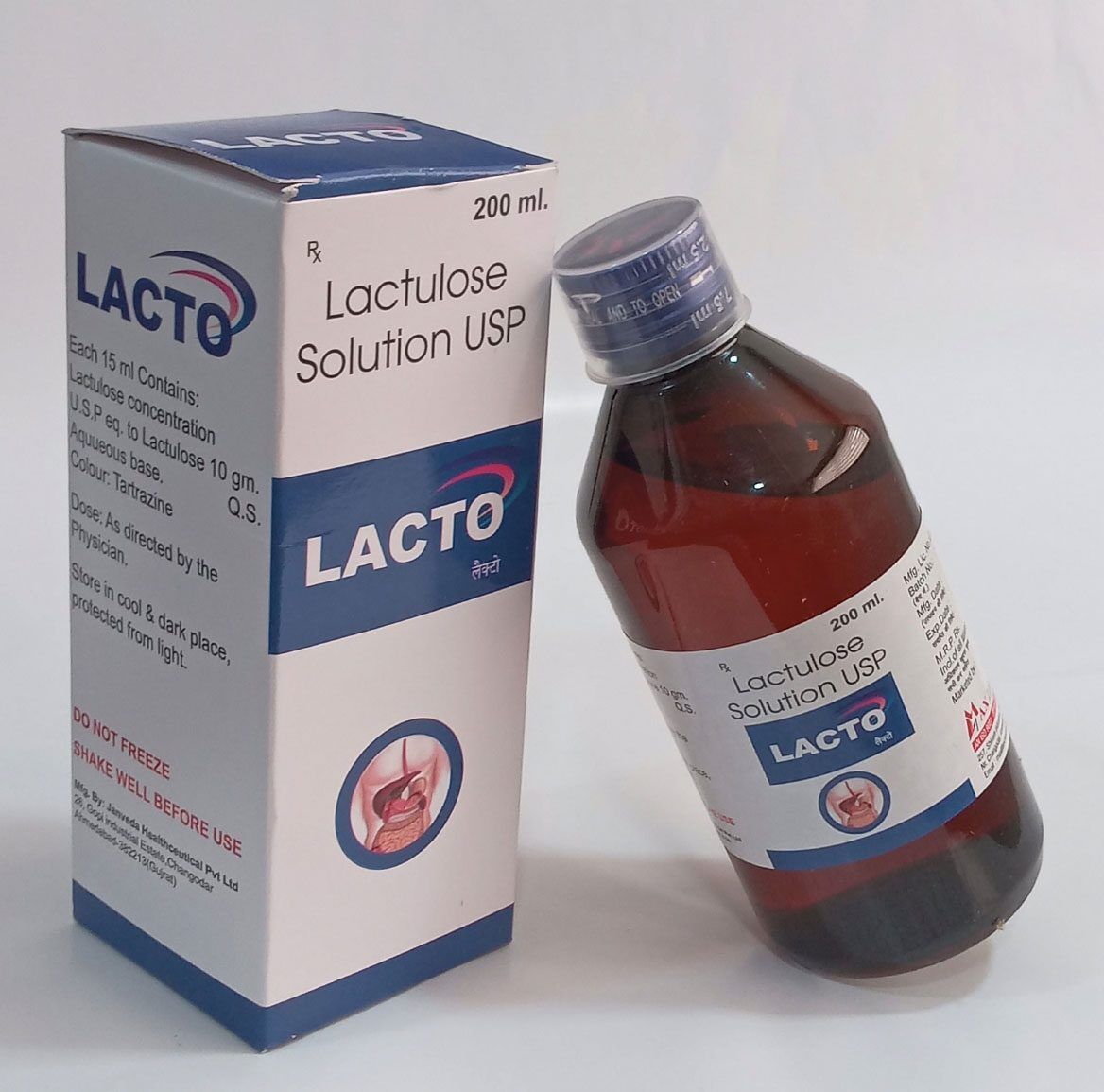Lactulose Suspension is a laxative made from lactose, primarily used to treat chronic constipation. Belonging to the drug class known as an ammonium detoxicant and osmotic laxative. This helps draw water into the intestines, making stools softer and easier to pass. The syrup-like formulation ensures gentle relief from constipation without causing sudden bowel urgency or discomfort. It also increases pressure, which prompts the muscles in your intestines to move stool.
Lactulose Suspension also plays a vital role in reducing elevated ammonia levels in patients with liver diseases. Lactulose suspension can be taken with or without food. Max Life Sciences is among the trusted and established producers of Lactulose Suspension, by the brand name Lacto Suspension. Partner with Max Life Science for PCD Pharma and third-party manufacturing business opportunities.
Working Mechanism of Lactulose Suspension
Lactulose Suspension functions as an osmotic laxative by drawing water into the intestinal lumen. It is a synthetic sugar that is not absorbed into the bloodstream. When it reaches the colon, intestinal bacteria break it down into mild organic acids.
These acids increase water content in the bowel and stimulate bowel movement. This softens the stool, making it easier to pass, and helps cleanse the intestines effectively. In liver patients, lactulose helps convert toxic ammonia into ammonium, which cannot cross into the bloodstream. This process reduces ammonia levels in the blood.
What are the Medical Benefits of Using Lactulose Suspension?
The medical benefits of using Lactulose Suspension are mentioned as follows:
Constipation Relief: Effectively treats chronic and occasional constipation by softening stools and promoting regular bowel movements
Hepatic Encephalopathy Management: Reduces blood ammonia levels in patients with liver disease, preventing confusion and mental changes
Pre-surgical Preparation: Used to cleanse the bowel before certain medical procedures
Safe for Long-term Use: It is suitable for extended treatment periods without significant tolerance development.
What Are the Possible Side Effects of Using Lactulose Suspension?
Understanding the potential adverse effects is crucial for ensuring safe and effective treatment. Most of them don’t require any medical attention; if they persist, consult your healthcare professional.
A list of possible side effects has been highlighted as follows:
- Nausea
- Flatulence
- Abdominal pain
- Diarrhea
- Vomiting
General Safety and Precautions While Using Lactulose Suspension
Like all medications, this suspension may cause some possible side effects. If these side effects persist, immediately consult your doctor or healthcare provider.
A list of side effects has been mentioned as follows:
- Avoid using it if you have pre-existing diabetes, as lactulose suspension contains galactose and lactose.
- Patients with galactosemia should avoid this medication.
- Stay well-hydrated while taking lactulose to prevent dehydration.
- Avoid use if you have intestinal blockage or require a low-galactose diet.
- If you’re pregnant or breastfeeding, avoid using Lactulose Suspension; consult your healthcare professional before using it.
How to Store Lactulose Suspension?
Follow the instructions mentioned below:
- Store Lactulose Suspension at room temperature between 15 and 30°C.
- Place it away from direct sunlight and heat.
- Avoid freezing this medication.
- Keep the bottle tightly closed when not in use and store it in a dry place.
- Keep it away from the children and pets.
Frequently Asked Questions (FAQ’s)
Q1: How long does it take for lactulose to work?
Lactulose typically produces a bowel movement within 24-48 hours. For hepatic encephalopathy, effects may be noticed within 24-48 hours of starting treatment.
Q2: Is lactulose habit-forming?
No, lactulose is not habit-forming and does not cause dependency, making it safe for long-term use under medical supervision.
Q3: Can children take Lactulose Suspension?
Yes, lactulose can be prescribed for children, but the dosage must be determined by a pediatrician based on the child’s age and weight.
